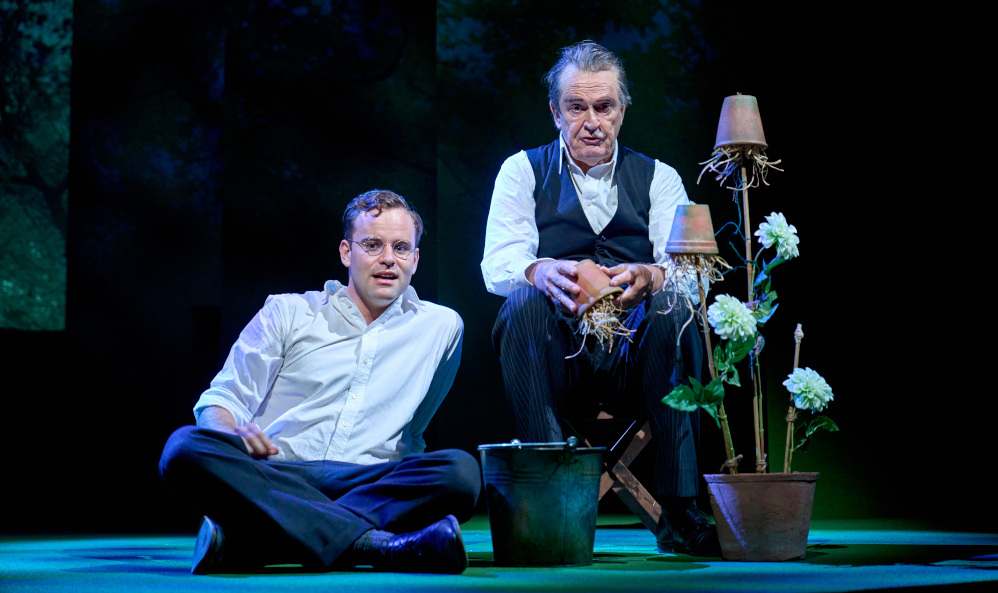
Review: A Voyage Round My Father
Review: A Voyage Round My Father
An intelligent and poignant character study
Rupert Everett’s transformation into a frail blind man is quite something to watch. Offstage, the star of films such as My Best Friend’s Wedding is a commanding presence. But in his new role in A Voyage Round My Father, he plays a cantankerous man who we see age before our eyes. His hair is white, his shoulders become increasingly hunched and he shuffles around the stage with the aid of a stick.
Rupert’s mannerisms are spot-on and nuanced, and we are drawn in to the world his character, known only as ‘Father’, inhabits – that of a renowned divorce lawyer, blinded in an accident, but carrying on as normal. His blindness is never mentioned by the family – they are instructed to ‘paint him a picture’ of what’s going on around him and his wife assists him in court. He is still very much ruler of the roost. His eggs have to be cooked perfectly. His son is desperate for his father’s approval, and a sign of his love.
Strange as it sounds, it is the autobiographical tale of John Mortimer, novelist and creator of Rumpole of the Bailey, and was first dramatised as a radio play in 1963. Since then, it has seen various adaptations, including Laurence Olivier and Alec Guinness in the role of the barrister.
This latest incarnation is in the hands of Richard Eyre, former artistic director of the National Theatre, and offers both a peak into a bygone era and a poignant character study.
The play opens in the 1930s. We see the son (Jack Bardoe) at his public school. The first half has plenty of funny lines such as the boy’s headmaster (Julian Wadham) giving the pre-pubescent schoolboys a lecture on taking a run or a bath if they wake in the morning having had ‘strange’ dreams and warning them of other boys who come bearing cake. Rupert’s character has plenty of witty lines, too.
It is quaint, amusing but there is not much in the way of conflict. The father is a loveable rogue that seems to be utterly adored in spite of his faults. He’s also a man who has suddenly gone blind, had his world turned upside down, and yet there are only a few hints at the anger and fear he must feel. He is stoic, to say the least.
The play builds slowly – but surely. By the second act, we see the impact that this perverse character, who finds much fun to be had in the misery of the divorce courts and makes a hobby of drowning earwigs in his beloved garden, has on his family.
His wife has given up everything, even her love for drawing, to be the doting companion. His son has followed in his father’s footsteps into law rather than pursue his passion for writing.
The father is getting more and more frail. We know the end. There are no plot twists. But it is compelling to watch. Sad, funny and intelligent.
Richmond Theatre until 14 October, and touring
Read our interview with Rupert about his role.







